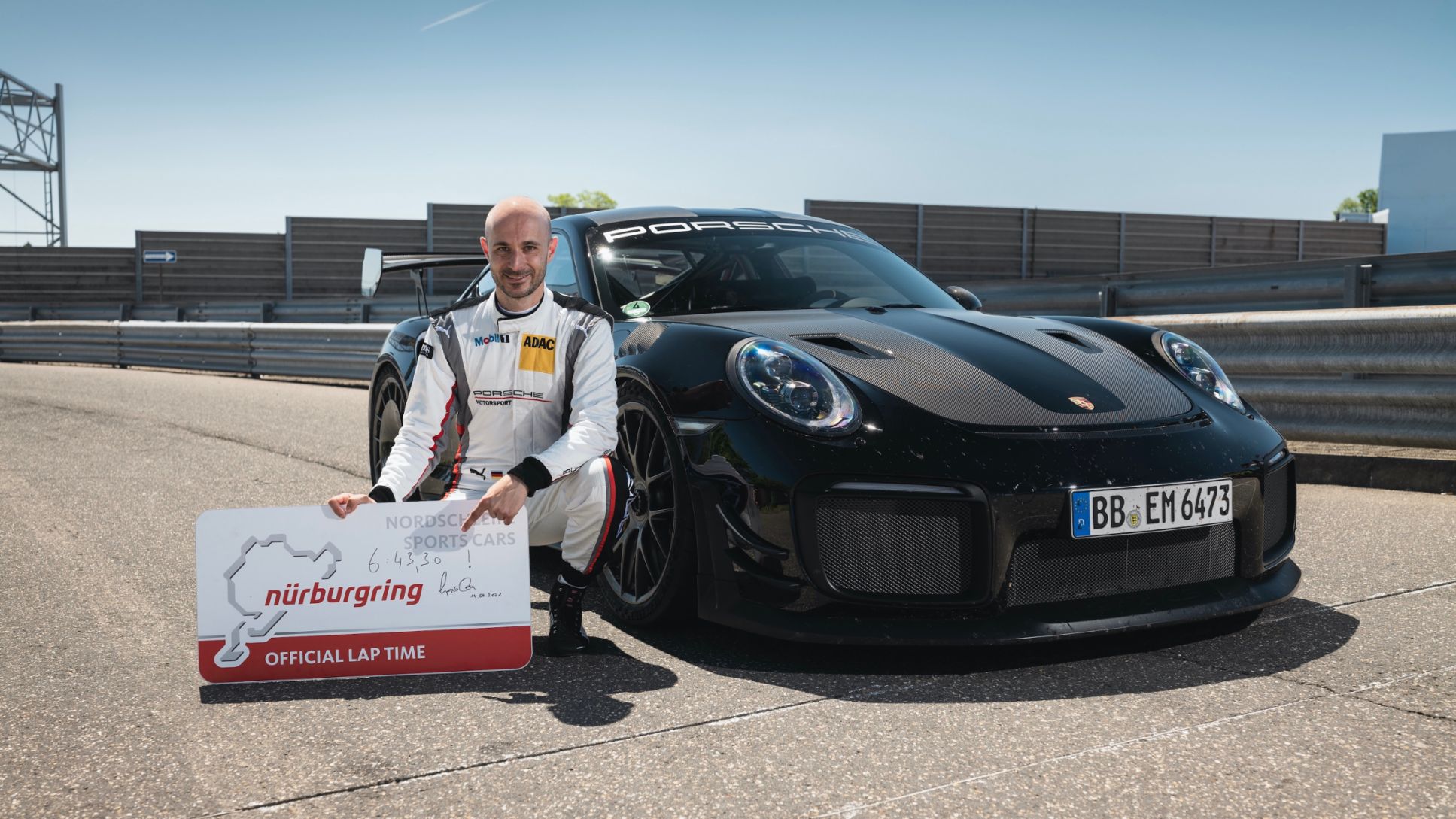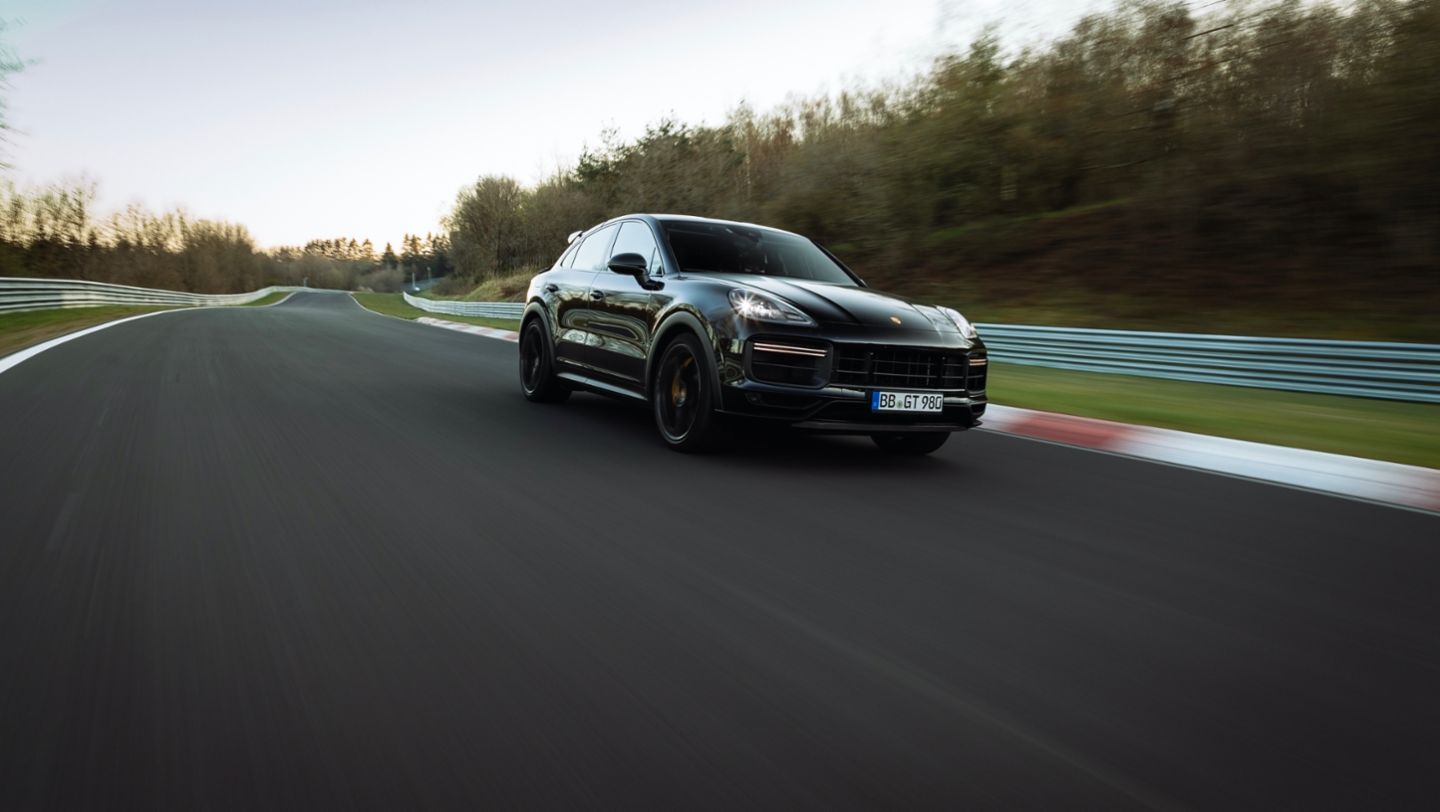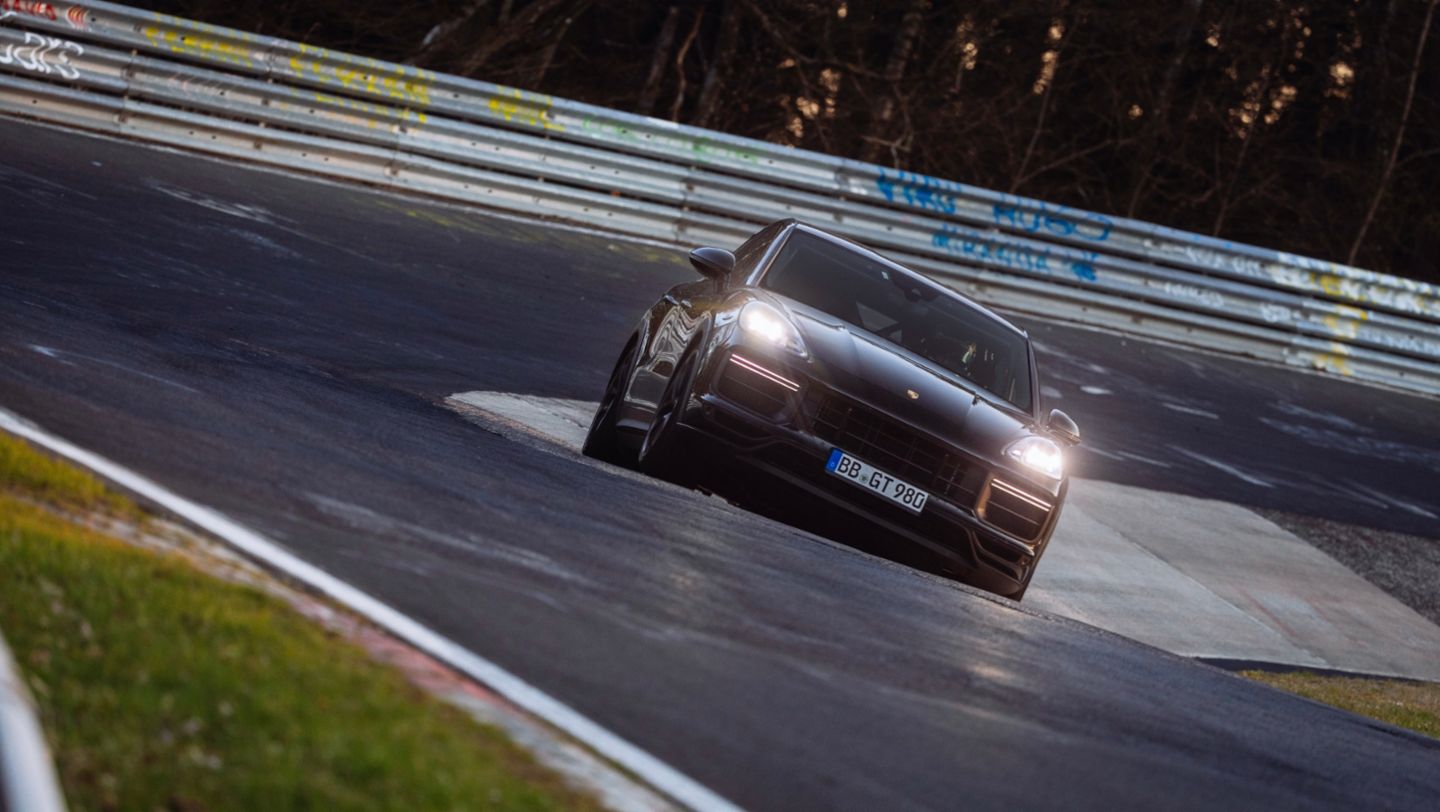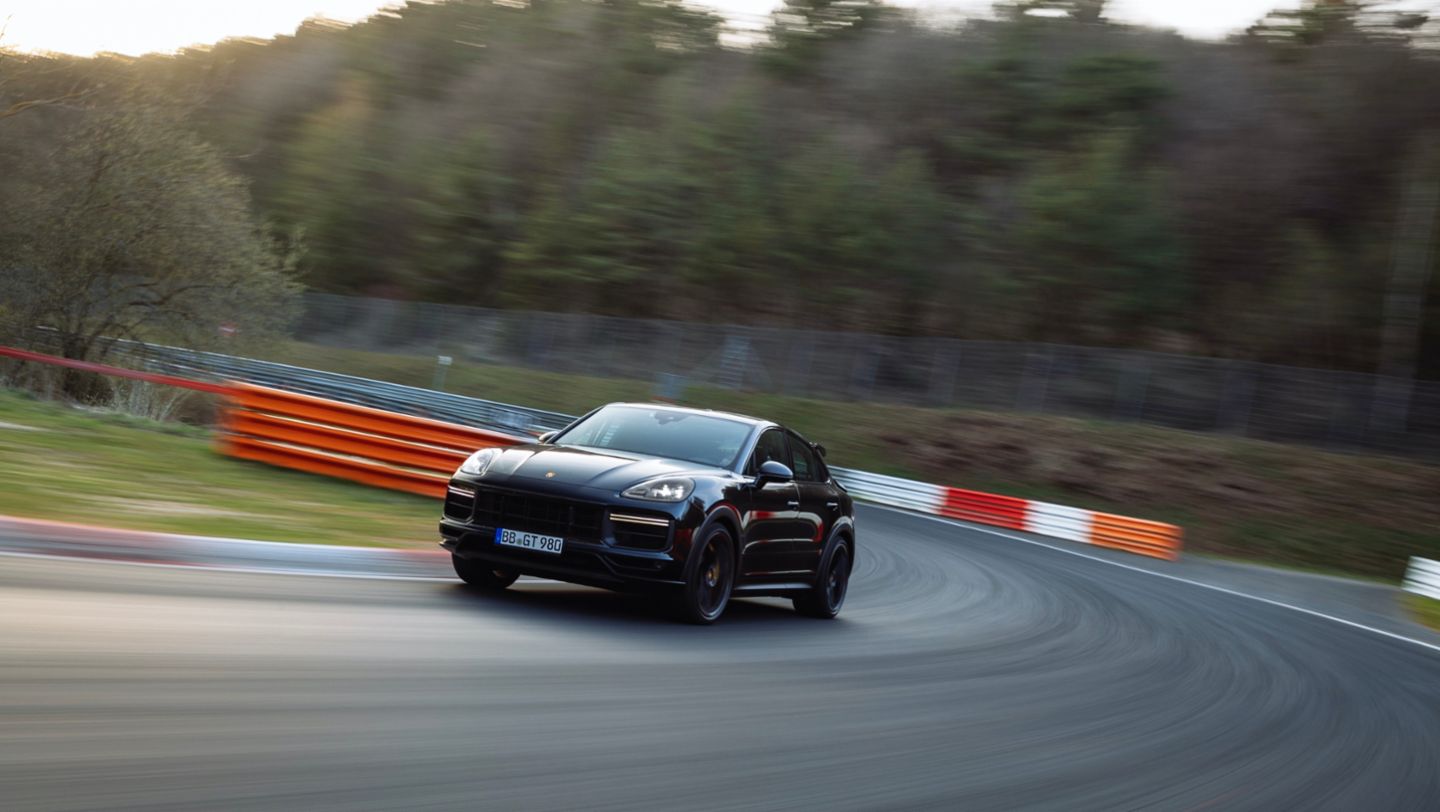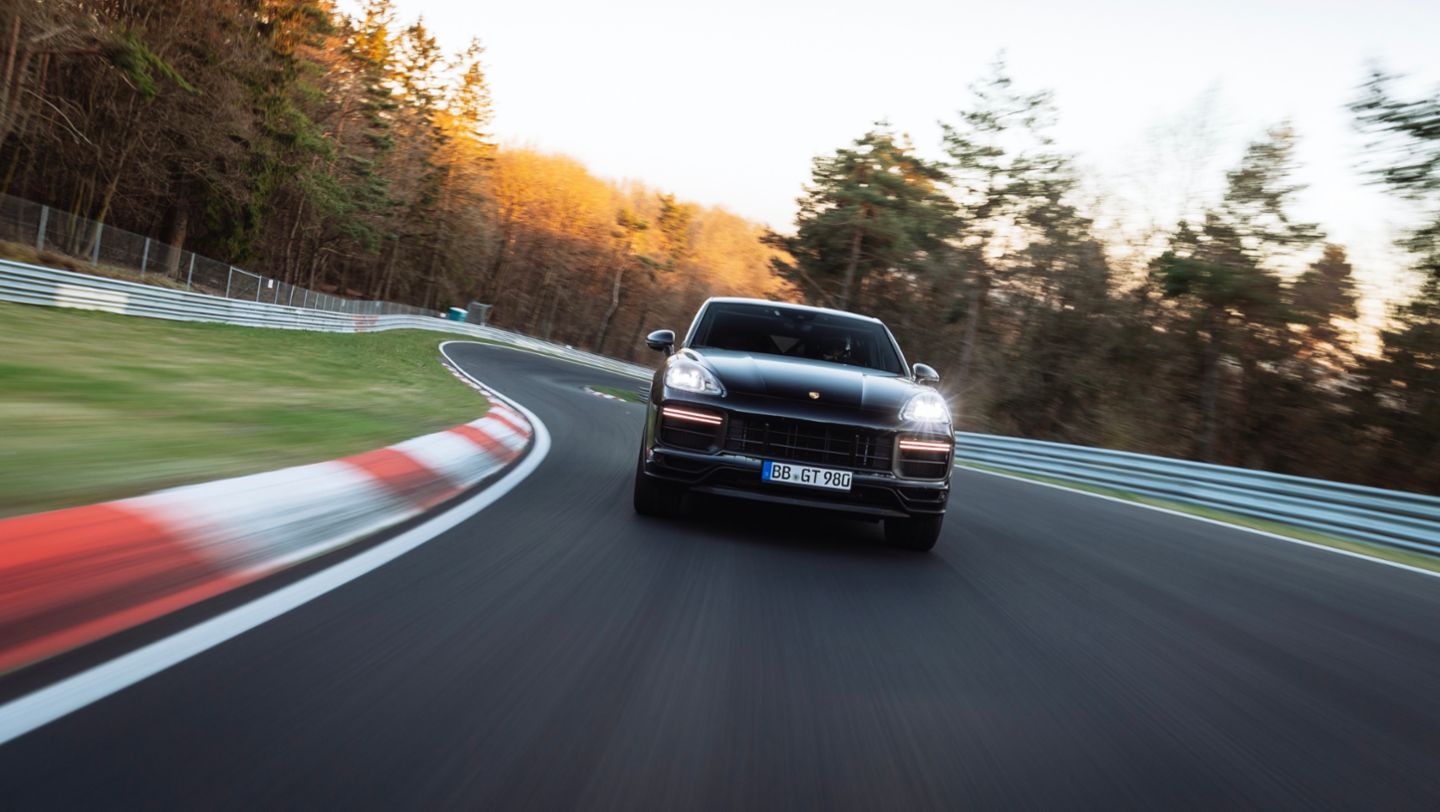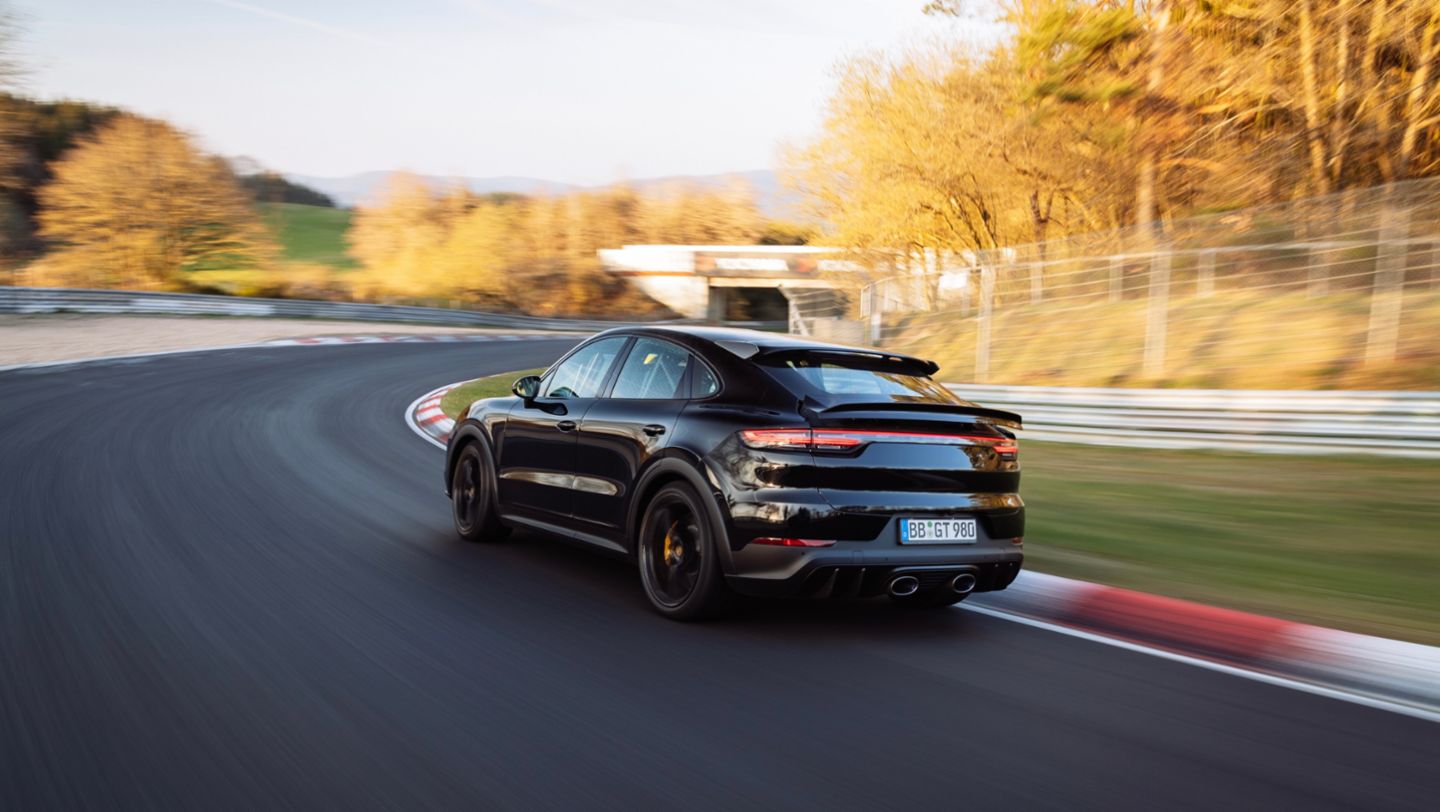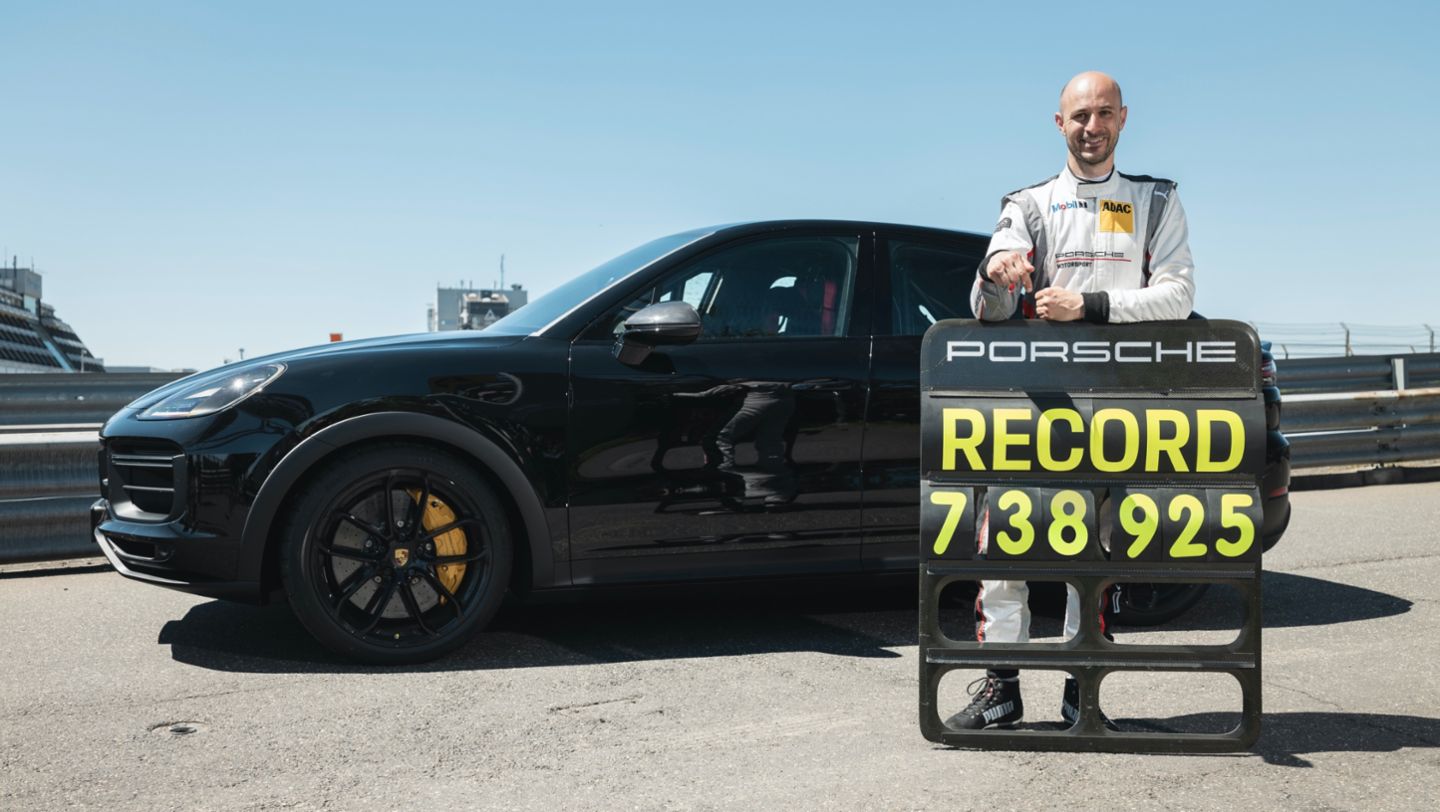Where:
Nürburg, Western Germany
Length:
20.8 km/12 minutes
Type:
A white knuckle ride around motorsport’s most revered race track
The Nürburgring Nordschleife is a destination drive for racing enthusiasts everywhere. Indisputably the most demanding circuit in the world, its toll road status has made it the ultimate track day destination with its famous ‘Touristenfahrten’. But what if this 20.8-kilometre loop through the Eifel Mountains, Jackie Stewart’s ‘Green Hell’ no less, was merely an extension of your office?
Lars Kern began working for Porsche as a test engineer 10 years ago, performing a variety of relatively low-key tasks in the final stages of road car development. “My job at the beginning was to do 0-100 or 200 km/h tests with development cars to see if we were meeting our targets,” says Kern. “And driving dynamics like slaloms – the sort of things the press might do later on. Porsche needed someone who could drive at a decent level, but not necessarily a racing driver. I also had to prep the press cars by doing all sorts of quality tests before they went out. Random stuff that someone has to do. But that was how I got started.”
In awe of the race track
By this time, it was not uncommon for the media to test around the Nürburgring and Kern was asked to shake down cars around the legendary circuit to ensure they were up to the task. “When I arrived there for the first time I was like ‘I can never learn this track!’. But I had the opportunity to do so many laps that at some point I reached a good level and Porsche took notice. And almost by accident, they started using me for the lap records.”
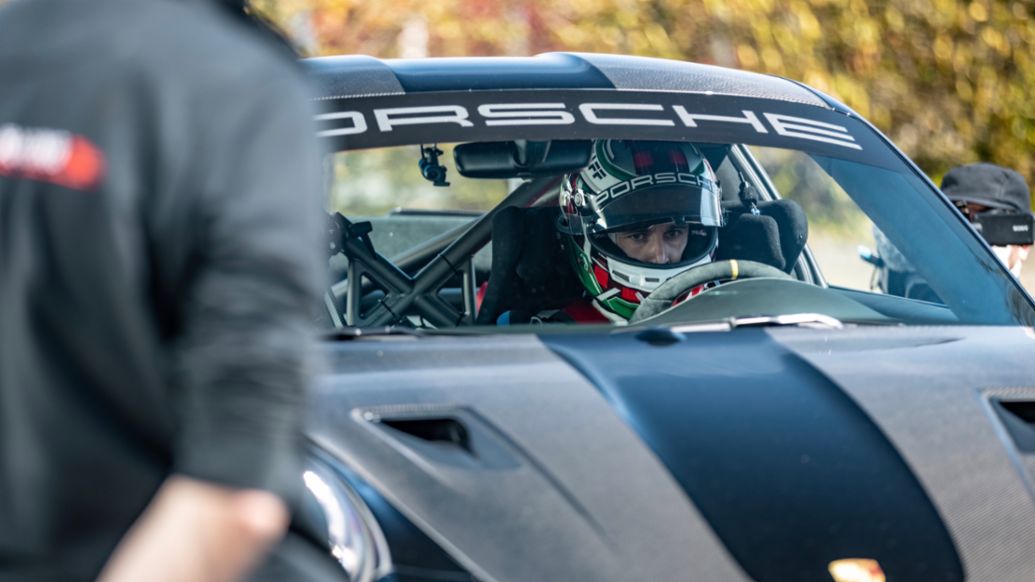
Built over a period of 18 months between 1925 and 1927, the Nordschleife lies beneath the village of Nürburg, 48 km south of Bonn. Accessed via the B258 that leads to Meuspath, on predetermined days throughout the spring and summer, visitors can negotiate its 154 corners in their own car for 25 Euros a time, taking in the sheer scale of the circuit and the incredible challenges it unfailingly throws up.
Nordschleife lap time as an industry benchmark
By 2010, the Nordschleife lap time had become an industry benchmark and Kern was asked to set a time in the first generation Panamera, the first in a long line that has seen him clock headline-grabbing record runs aboard the 911 GT2 RS and most recently the new Cayenne Turbo GT. It is a part of the job that demands commitment and acceptance in equal measure. “To be honest, there is no perfect lap,” Kern says. “You will always have a little wiggle here or there because the track is so long that you’ll never get every corner right and you know in yourself that you could have done something better. Everyone who is experienced at the ‘Ring knows that, and that’s why, with the lap records, you have to know when to stop. You can always find some time somewhere, but you’ll just lose it somewhere else.”
Kern’s preferred approach to lapping the Nordschleife relies on feel and instinct, best illustrated on his favourite stretch between Hohe Act and Döttinger Höhe. “It’s a long section with no straights,” he explains, “and there’s no situation where you can think. You just have to deliver, push as hard as you can and take the most out of the car. On the straights, you start to think about your speed and braking, and it’s always better not to do that. In this section, you’re just in the flow, corner after corner, and it’s all about your positioning, how you go into the corner and then rotate the car. It’s instinctive, and that’s what I really like.”
Unpredictable circumstances
Like any job, it has its downsides, and the unpredictable weather that dogs the Nürburgring means that Kern can spend days at the circuit without getting to drive. “If there’s a hint of rain we stop immediately,” he says, “because there’s no way we can risk the car or my health. So sometimes we simply hang around and wait, hoping for better weather the next day. I know the local hotel rooms inside out!”
But Kern’s recollections of the ‘Ring are overwhelmingly positive, with one standout moment that occurred in the late summer of 2017. “My favourite memory from the ‘Ring is driving the GT2 RS for the lap record. I’d only been involved with the development a little bit at the end and so Porsche Motorsport also sent Nick Tandy to do the record because they were sure he’d do the quick one. We each had three or four attempts and I was a second quicker. Nick’s one of the greatest GT drivers in the world so I could not believe I was up on him. And of course, the overall lap time was 10 or 12 seconds quicker than anyone had expected, so everyone was elated at the end of the day. Being the guy who did that – just a normal guy who grew up 10 km from Weissach – that was pretty special for me.”
Lap record with the GT2 RS
With the limitations of traffic, horsepower and talent, most visitors to the Nordschleife can expect a lap to last 12 to 15 minutes. Kern, however, had smashed the seven-minute mark for the first time, taking the new record for rear-wheel drive road cars down to a scarcely credible 6.47.3 minutes. And he would shave a further nine seconds off that in June of 2021 with a GT2 RS featuring the Manthey Racing performance package.
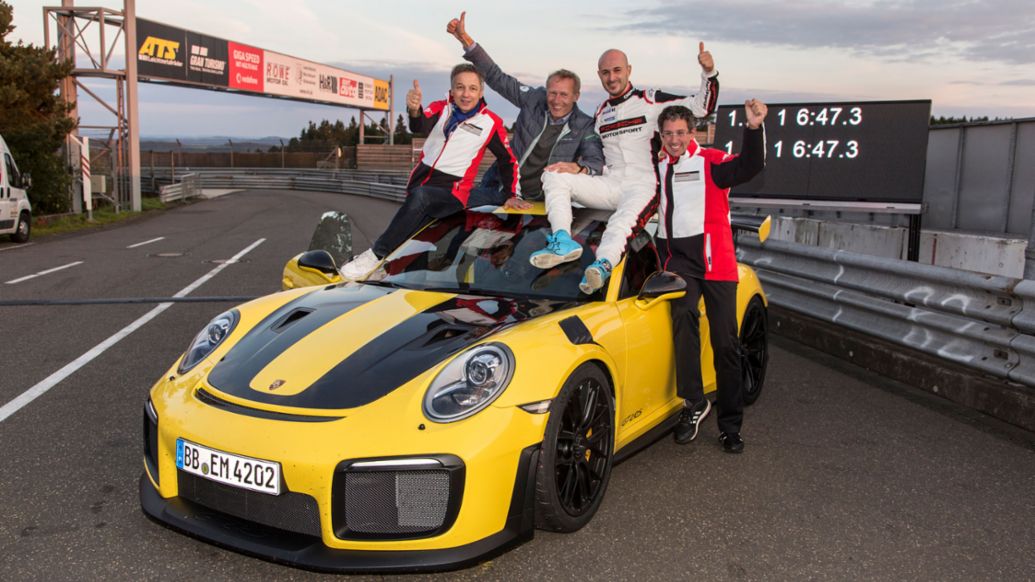
Despite the evident attractions of being Porsche’s hot lap specialist, it is a role that brings with it high hopes and expectations of others. “Yes, it’s fun,” Kern says, “but a lot of the time the pressure and ambition from project teams are hanging over me, so I can’t just cruise around enjoying the lap. The whole car world is looking at us, looking at our lap times, so the best part is when it’s done and everyone is happy. And I’m still in one piece!”
Sunday Drives
With travel restrictions limiting the opportunities for road-trips, Porsche Newsroom’s new Sunday Drives series sets out to quench readers’ thirst for adventure by discovering the world’s most beautiful driving roads through the eyes of Porsche people around the globe.
